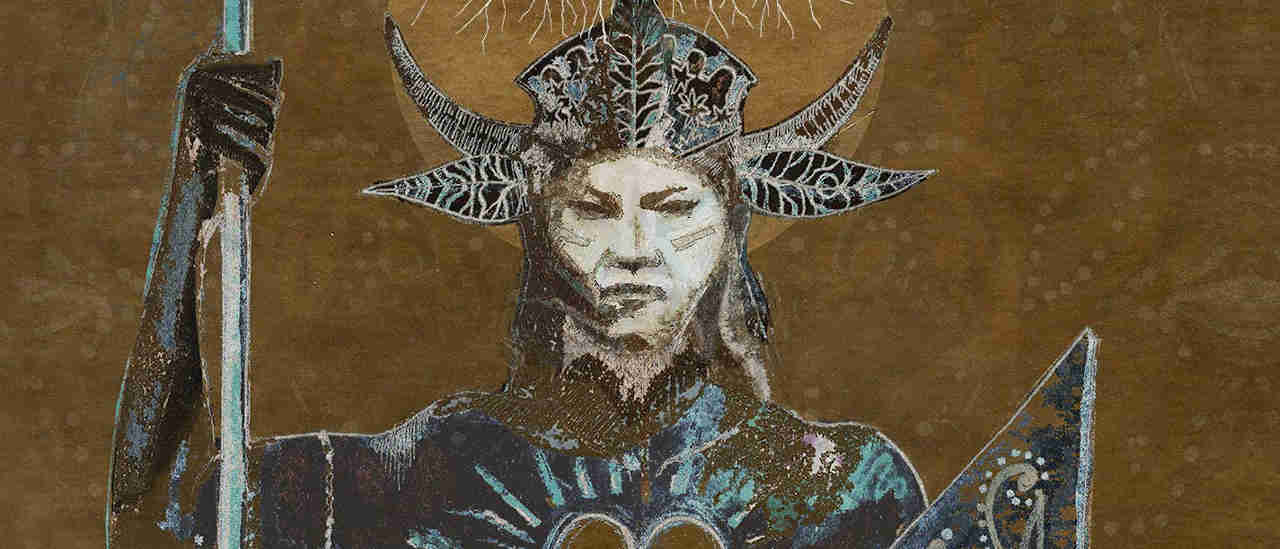Gojira don’t play death metal anymore. That’s not an insult, it’s a fact. They’ve always had lofty ambitions for four regular, eco-friendly blokes from the French countryside, and each record since 2001’s initial burst, Terra Incognita, has hinted at something more.
That evolution became impossible to ignore on 2012’s L’Enfant Sauvage – it armed them with newfound rounds of melodic musical ammunition, pebble-dashing their influence on everyone from Architects to Conjurer. Magma arrived four years later, pushing the Sea Shepherd dinghy further. Singles like Stranded stomped with full-on, Black Album-era Metallica bullishness; this rubbed against much of the record’s melancholy vastness, rooted in personal tragedy borne by lead songwriters and brothers, Joe and Mario Duplantier.
For album number seven, Magma’s experimentalism is channelled into what can only be described as The Fucking Hit Factory. Everything works immediately, even when it shouldn’t. On paper, Amazonia comes off as Sepultura’s Roots in a three-piece suit: boingy-woingy jaw harp, throat singing and woodwind all wrapped up by gap-year Gojira, ‘The greatest miracle is burning to the ground’ serving an indictment of how we’re destroying the planet. In a similar vein to Ancient Egypt hobbyists Nile, every chord, every note is meticulously carved to detail a textured world ripe for exploration; by the time the song’s soaring leads finally pierce through, you’re pretty much ready to tie yourself to a tree and get totalled by an American in a bulldozer. This isn’t just music to bang your head to. This is Gojira’s starkest, definitive protest song amidst a discography littered with them.
It’s wholly transportive and hammers home that earthly, human quality they’ve always managed to hide beneath the blastbeats. Their innate knack for pathos shines, whether that be on Another World’s plea for human beings to stop being massive shitbags, or Into The Storm’s show-stopping refrain. You don’t even have to speak English for that to move you. So when The Chant arrives, all stacked harmonies and mid-tempo balladry, Fortitude’s unveiled enough depth for this to not just make sense, but stand out as one of its more striking moments. These aren’t the actions of a band selling their souls or dumbing down. They’ve just fleshed out every aspect of their vision, and instead of bastardising The Chant by way of radio rock tune, they’ve twisted it into a kumbaya hold-my-hand anthem. They’re recording by feel.
That’s not to say Gojira scrimp on extremity, mind. Grind does what it says on the tin, piling pick-scrape upon pick-scrape; Sphinx’s verses harbour guttural, multi-tracked vocals you’ve not heard from Joe since The Way Of All Flesh. But it never relies on or fetishises the past, effortlessly counterbalancing said brutality with undeniable hooks and twin leads.
Fortitude is everything you wanted from Gojira and more: a breathtaking showcase of heaviness and dedication to the craft, teasing out tones, passages and emotional resonance other bands just can’t access. It’s metal for the masses, and Gojira’s crowning achievement. If they aren’t playing arenas at the end of this album cycle, it’s probably your fault.

